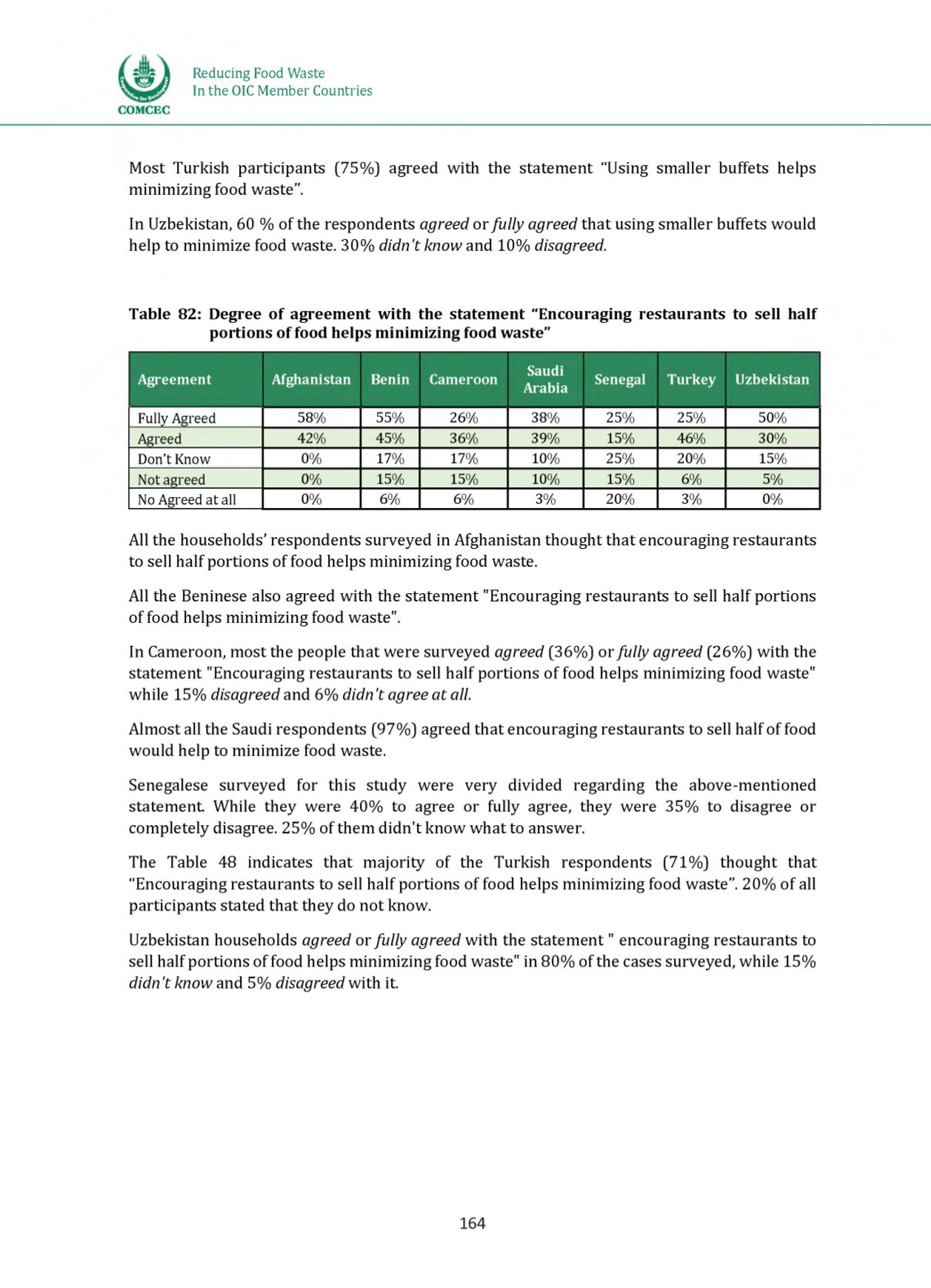

Reducing Food Waste
In the OIC Member Countries
COMCEC
Most Turkish participants (75%] agreed w ith the statement “Using smaller buffets helps
m in im iz ing food waste”.
In Uzbekistan, 60
%
of the respondents
agreed
or
fully agreed
th a t using smaller buffets w ould
help to m in im ize food waste. 30%
didn't know
and 10%
disagreed
.
Table 82: Degree of agreement with the statement "Encouraging restaurants to sell half
portions of food helps minimizing food waste”
Agreement
Afghanistan Benin Cameroon Saudi
Arabia Senegal
Turkey Uzbekistan
Fully Agreed
58% 55% 26% 38% 25% 25% 50%
Agreed
42% 45% 36% 39% 15% 46% 30%
Don’t Know
0%
17% 17% 10% 25% 20% 15%
Not agreed
0%
15% 15% 10% 15% 6%
5%
No Agreed at all
0%
6% 6%
3% 20% 3%
0%
All the households’ respondents surveyed in Afghanistan though t tha t encouraging restaurants
to sell h a lf portions of food helps m in im iz ing food waste.
All the Beninese also agreed w ith the statement "Encouraging restaurants to sell h a lf portions
of food helps m in im iz ing food waste".
In Cameroon, m ost the people tha t were surveyed
agreed
(36% ) or
fully agreed
(26% ) w ith the
statement "Encouraging restaurants to sell h a lf portions o f food helps m in im iz ing food waste"
while 15%
disagreed
and 6%
didn't agree at all.
A lm ost all the Saudi respondents (97% ) agreed tha t encouraging restaurants to sell h a lf of food
w ou ld help to m in im ize food waste.
Senegalese surveyed for this study were very divided regarding the above-mentioned
statement. W h ile they were 40% to agree or fully agree, they were 35% to disagree or
completely disagree. 25% of them d id n 't know w h a t to answer.
The Table 48 indicates tha t m ajority of the Turkish respondents (71% ) though t tha t
“Encouraging restaurants to sell h a lf portions of food helps m in im iz ing food waste”. 20% o f all
participants stated tha t they do n o t know.
Uzbekistan households
agreed
or
fully agreed
w ith the statement " encouraging restaurants to
sell ha lf portions of food helps m in im iz ing food waste" in 80% of the cases surveyed, while 15%
didn't know
and 5%
disagreed
w ith it.
164
















